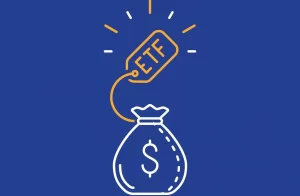
The Difference Between Secured and Unsecured Loans
Your loan choice depends on your financial needs, asset availability and lender requirements. Secured loans tend to offer lower interest rates, larger borrowing limits and longer repayment terms than their unsecured counterparts.
Secured debt is advantageous as its creditors can seize an asset if payments go unpaid; while unsecure debt poses more of a risk for lenders.
Collateral Requirements
When borrowing money, it’s essential to understand the differences between secured and unsecured loans in order to increase your approval chances, rates and fees, borrowing limits and required collateral. A secured loan requires using collateral such as your house or car as security for a debt, which reduces risk for lenders while potentially offering more competitive interest rates; in some cases they can even extend loans for significant purchases even with lower credit scores; however, missing payments could damage your credit and lead to repossession of your asset by your lender.
Collateral-backed loans such as mortgages, HELOCs, auto loans and business loans rely on collateral in order to secure repayment, while an unsecured loan only requires your promise to repay and can often be determined based on creditworthiness and income. Unsecured debt can therefore pose more of a risk for lenders; to lower this risk borrower can reduce risk through budgeting and planning carefully.
Interest Rates
Interest rates on secured loans will depend on both the collateral provided and borrower creditworthiness, with lenders reviewing credit histories and scores, debt-to-income ratios, among other details, to ascertain eligibility.
Secured loans encompass mortgages, auto loans and personal loans (including lines of credit). As collateral, collateral can include property such as cars or jewelry or stocks and bonds or cash stored in a savings account; with some types of secured loans requiring an upfront security deposit payment.
Without collateral to safeguard their loans, unsecured loans present more of a risk to lenders and therefore often come with higher interest rates than secured debt. If you fail to repay an unsecured loan on time, the lender could take legal action such as garnishing wages or placing a lien against your home or car – making qualifying for one difficult for those with poor credit; however some lenders do offer pre-qualifications without negatively affecting credit scores.
Payment Options
Secured loans allow lenders to evaluate your assets and creditworthiness to determine if you pose a sufficient risk. This process typically includes an analysis of your credit history and score, income level and debt-to-income ratio. With some types of secured loans like secured mortgages or secured credit cards, the borrower deposits cash upfront that serves as their initial credit limit; in the event that they default, lenders can repossess your collateral as an act of repayment.
Unsecured loans pose greater risk for lenders without collateral security, leading to stricter qualification standards and higher interest rates. Furthermore, lenders may hesitate to lend large sums which makes accessing substantial funds difficult. Furthermore, unsecure loans tend to have limited uses such as paying off debt or covering medical expenses.
Time to Repay
No matter if it’s secured or unsecured debt, lenders will take a careful look at your credit history, score and finances to assess loan eligibility. Achieved higher credit scores may help qualify you for lower rates on both types of debt; and secured loans often feature more flexible terms with higher borrowing limits and longer repayment periods than their unsecured counterparts.
Secured loans are secured to assets, which the lender can seize and sell to cover any unpaid debt. Unsecured loans don’t require collateral but still have credit implications from missed payments if payments go uncollected – courts, liens on property or garnishing wages to collect on unpaid unsecured debt could happen regardless of who issued them – this loan type will have long-term ramifications on both your financial health and credit report; both types can be found at banks, credit unions and online lenders with approval chances, interest rates/fees/borrowing limits/collateral requirements depending on which loan type you select – choosing either type will depend upon approval chances, interest/fees rates/feess as well as whether collateral requirements and approval chances.



